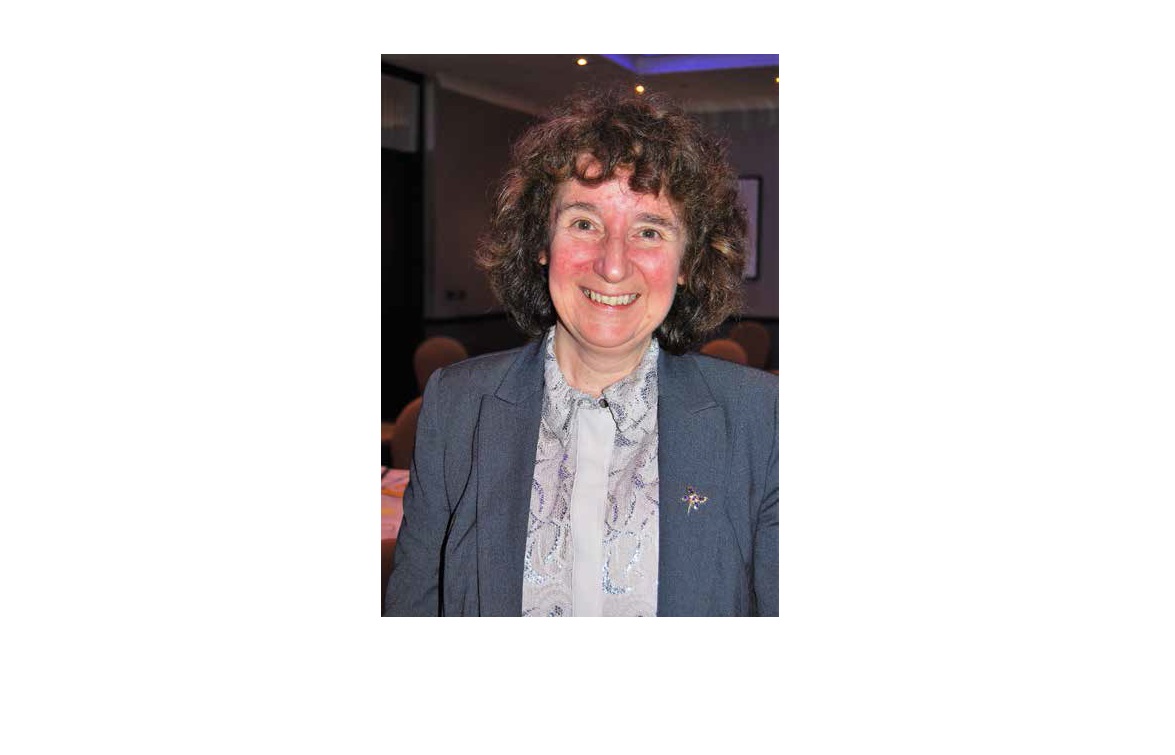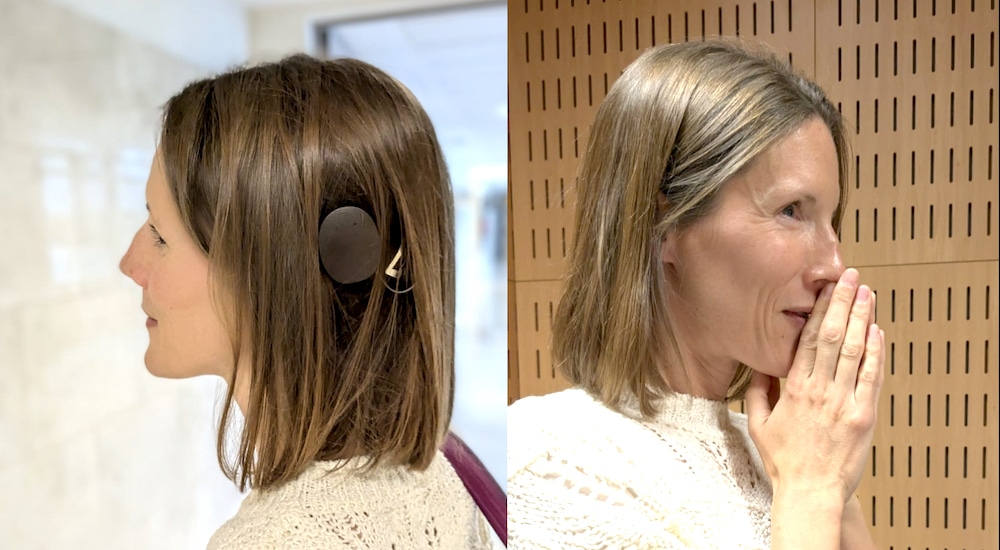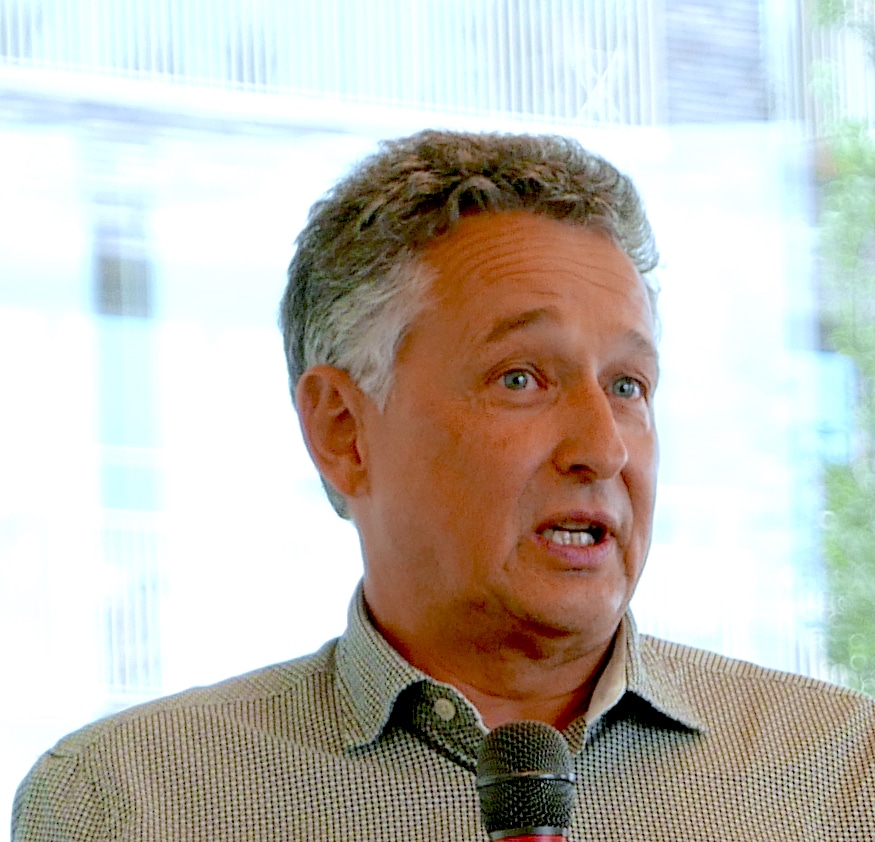Interview with Elizabeth Midgley, chair of the British Society of Audiology
BSA
Elizabeth Midgley tookover as Chair of the BritishSociety of Audiologyin June 2016, so she isnearing the end of hertwo-year term of office.

During her time as Chair,the society has markeda significant milestone −celebrating 50 years − andheld their first e-Conferenceat the end of 2017. Therehave been many otherchallenges and successesin that time, which Lizshares with Audio Infos UK.
Audio Infos: Which qualification and career pathdid you take?
Elizabeth Midgley: I completed a BSc in Physiologyand Pharmacology then an MSc in Audiology, both fromManchester University. I started work as a ResearchAssistant in audiology at Manchester University in 1980.I then spent 10 years as an Audiological Scientist inthe paediatric audiology service in Bristol, the last fivewere in a part time capacity. In August 1992, I wasappointed Head of paediatric audiology in Bristol, therole I currently fulfil.
AI: Why did you choose to work in the audiologyprofession? Was there a specific event or personthat inspired you to take this path?
EM: I wanted to work with people and was looking forfurther training after my first degree. Audiology was firstin the book I was looking at! Also, my mother-in-law wasan audiologist so I knew it was an interesting career.
AI: You are currently Chair of the British Society ofAudiology. What attracted you to the BSA organisation andwhat motivated you to put yourself forward for the role?
EM: I’ve always been a member of the BSA since Igraduated in audiology. It has always been the organisationto belong to for keeping up to date with current bestpractice and good learning events.
I didn’t put myself forward for the role of Chair! I was askedto take on the role of vice chair and I believe that otherswould have been asked prior to myself! There were notakers at the time as the BSA was going through a lowpatch. I didn’t say no as I believe that the BSA is a veryimportant organisation. BSA best practice guidelinesare used and quoted world-wide and if the BSA didn’texist who would write these guidelines?
The BSA is also the only organisation in audiology withmembers from all professions in audiology. Therefore,I agreed to take up the role of vice chair (VC) and theVC automatically becomes the chair after two years inthe post.
AI: What challenges have you faced in this role?
EM: A steep learning curve, learning all about the variousorganisations and people involved in the wider field ofaudiology. Finding the time to carry out BSA duties aswell as the day job.
AI: How do you combine your day job with yourBSA role?
EM: A while ago my manager agreed to me working myfull-time hours in four long days to enable me to havea day off each week. Whilst I’ve been involved in BSAI’ve carried on working for five long days so I can spendsome time on BSA work and the day job doesn’t lose out.
AI: Can you tell us about some of the initiatives youhave worked on?
EM: Continuing the modernisation of the BSA. Workingwith the BSA action plan. Two annual conferences inCoventry and Harrogate. Addressing financial challenges.Addressing the challenges of the Operations Managerleaving for new roles.
AI: What are you most proud of during your timeas chair?
EM: Working with a lovely team of officers and councilmembers in taking the BSA forward into a modern era.The BSA was, I think, regarded as rather an outdatedorganisation but the reputation of the BSA is now muchmore vibrant and modern. There is also a highly regardedteam of people to take the work of the BSA forward into the future when I step down as chair so hopefully thefuture of the BSA is strong and assured.
AI: Have any women, or men, been an inspiration toyou during your time in audiology?
EM: My guru in paediatric audiology has always beenBarry McCormick. I always found/find the lectures ofPat Chute and Carol Flexor inspirational.
AI What advice would you give to the next generationof graduates entering the audiology profession?
EM:
- Whatever age of clients you are helping rememberthat you can make a huge difference to their lives.
- Remember that behind every statistic (about targetsor waiting lists etc) there are people with lives andfamilies. They are not just statistics.
- Take every learning opportunity made available toyou so you can discuss issues on equal terms withcolleagues e.g. in ENT.
- Make sure your practice is as evidence-based aspossible. Don’t do something just because “it’s alwaysbeen done like that round here” or someone tells youto! Question things, think about things, look at theevidence…
Representing all disciplines
Elizabeth Midgley is the fifth female Chair inthe 50-year history of the BSA; following in thefootsteps of Val Cleaver, Peggy Chalmers, LindaLuxon and Rosalyn Davies. She combines this rolewith being Head of Children’s Audiology in theRegional Specialist Children’s Hospital in Bristoland Team Leader for the Avon Newborn HearingScreening Programme. She has always worked aspart of multi-disciplinary teams with Audiologists,Clinical Scientists, Paediatricians, ENT doctors,Teachers of the Deaf, Educational Audiologistsand Speech and Language Therapists.
Each of those specialisms has its own professionalbody but the British Society of Audiology is the onlysociety that has members from all the disciplinesinvolved in Adult and Paediatric Audiology. Liz iscontributing her experience of working with manydifferent professionals in audiology to further thework of the Society in clinical standards, evidencebasedpractice and academic achievement.
Read this article on Audio Infos UK #118 (free flipbook on our library) here.


